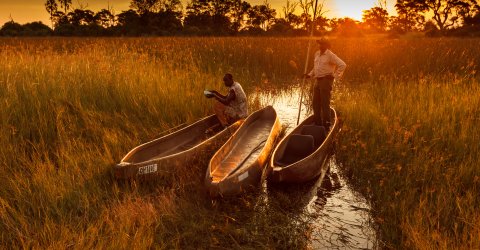
The commitment of the tourism sector to conserve wetlands and biodiversity
Biodiversity in general and wetlands in particular have been at the core of the interest and motivation of travellers to visit particular destinations. However, in recent decades, the progressive damage to wetlands and the subsequent impacts on the surrounding ecosystems have raised many concerns globally. The tourism community is not an exception, and it has demonstrated a strong commitment to responding to this challenge.
The beauty of nature is in our minds when we think about travel. Wetlands, forests and coastal areas, among others, are perfect examples of idyllic images we all visualise when we close our eyes. However, we should consider the damage that we can cause to those ecosystems when we visit them, and therefore should become environmentally sensitive travellers rather than agents of the loss of natural heritage.
As the tourism sector continues to expand – in 2016, 1.2 billion international tourists travelled the world - we need to address the key challenge of sustainable development in the destination areas, while maximising the potential of tourism to contribute to their conservation.
Tourism is the best catalyst for advocating sustainability principles, but also for mobilising all of us to promote joint actions to protect the environment. This potential should be particularly used in the conservation of wetlands which are especially sensitive and fragile.
The commitment of the traveller together with the raising of concerns at policy level should result in strengthening effective governance structures for sustainable tourism, by integrating tourism planning in the management of wetlands.
Concerted efforts from the public and private sectors, civil society,and international development agencies are required to support planning and management of sustainable forms of tourism worldwide. With these efforts in place, we are sure that tourism can be instrumental in protecting not only wetlands but biodiversity in general.
The International Year of Sustainable Tourism for Development in 2017 is a unique opportunity to advance these efforts and to place the sector at the core of biodiversity protection, so that ecosystems feature in a sustainable way as part of the so-called “blue economy”.
And as we travel, let us all remember to enjoy and respect our planet and its rich biodiversity.
By Taleb Rifai, Secretary-General, World Tourism Organisation (UNWTO)